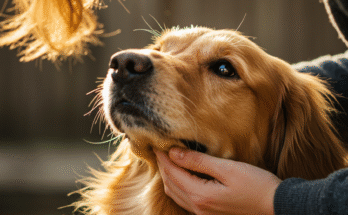The German Shepherd is one of the most popular and recognizable dog breeds in the world—and for good reason. Known for their intelligence, loyalty, versatility, and noble appearance, German Shepherds have earned a solid reputation as ideal companions, working dogs, and protectors. Whether you’re considering adopting one or just want to learn more about this remarkable breed, this guide covers everything you need to know.

Origins and History
The German Shepherd breed was developed in Germany in the late 19th century by Captain Max von Stephanitz. His goal was to create the perfect herding dog, one with intelligence, strength, agility, and a loyal temperament. By selectively breeding the best herding dogs from across Germany, von Stephanitz established the foundation of the modern German Shepherd.
Originally used to herd sheep, the breed’s exceptional intelligence and trainability soon made it a favorite for various roles, including military, police, and search-and-rescue operations. German Shepherds gained international fame during World War I and II, and they’ve continued to serve in countless capacities ever since.
Physical Appearance
German Shepherds are large, muscular dogs with a distinct appearance. Males typically weigh between 65–90 pounds (30–40 kg) and stand 24–26 inches tall (60–65 cm), while females are slightly smaller. They have a double coat—thick and dense—that can be medium to long in length.
The most recognized color is black and tan, but they can also come in sable, black, white, liver, and even blue. Their upright ears, strong jaws, and bushy tails give them a commanding and confident presence.
Personality and Temperament
This breed is known for its unwavering loyalty and protective instincts. German Shepherds are incredibly bonded to their families and are often described as gentle and affectionate toward their loved ones. However, they can be reserved or wary around strangers, which makes them excellent watchdogs.
German Shepherds are highly intelligent and eager to learn. This intelligence, combined with their drive to work, means they thrive in environments where they have a purpose or regular mental and physical stimulation. Without enough engagement, they can become bored and even develop behavioral issues.
Training and Socialization
Training is essential for a well-behaved German Shepherd. Their natural intelligence means they pick up commands quickly, but consistency and positive reinforcement are key. Early socialization—exposing them to different people, places, and experiences—is crucial for helping them grow into confident, well-rounded adults.
These dogs excel in obedience, agility, protection training, and even advanced tasks like scent detection. Because of this, they’re often employed in law enforcement, military service, and as service dogs for people with disabilities.
Exercise and Activity Needs
German Shepherds are high-energy dogs and require a good amount of daily exercise—at least one to two hours. Walks, runs, fetch, and agility courses are all excellent ways to keep them active. Mental stimulation is just as important as physical activity, so puzzle toys and training games can help satisfy their intelligent minds.
If their exercise needs aren’t met, they can become restless, anxious, or destructive. These dogs do best with active families or owners who enjoy outdoor activities and can commit to regular engagement.
Grooming and Care
Due to their thick double coats, German Shepherds shed year-round, with heavier shedding occurring in the spring and fall. Regular brushing—at least a few times a week—helps manage this and keeps their coat healthy. During shedding seasons, daily brushing may be necessary.
They also need regular nail trimming, ear cleaning, and dental care. While they’re generally a healthy breed, they can be prone to conditions such as hip dysplasia, elbow dysplasia, and degenerative myelopathy. Regular vet checkups and a proper diet are important to keep them healthy.

Living Environment
German Shepherds can adapt to a variety of living environments, but they do best in homes with space to move. A backyard is ideal, but not strictly necessary if they’re given enough exercise. They are not well-suited to being left alone for long periods, as they thrive on companionship and interaction.
They are generally good with children and can coexist with other pets when raised and socialized properly. Their protective nature means they will watch over the home and loved ones with keen attention.
Final Thoughts
The German Shepherd is a powerful, loyal, and intelligent breed that excels in many roles—from family companion to working dog. They require time, training, and dedication, but in return, they offer unmatched loyalty and a deep bond with their owners. If you’re ready to meet their needs and embrace an active, purposeful relationship, a German Shepherd could be the perfect addition to your life.


